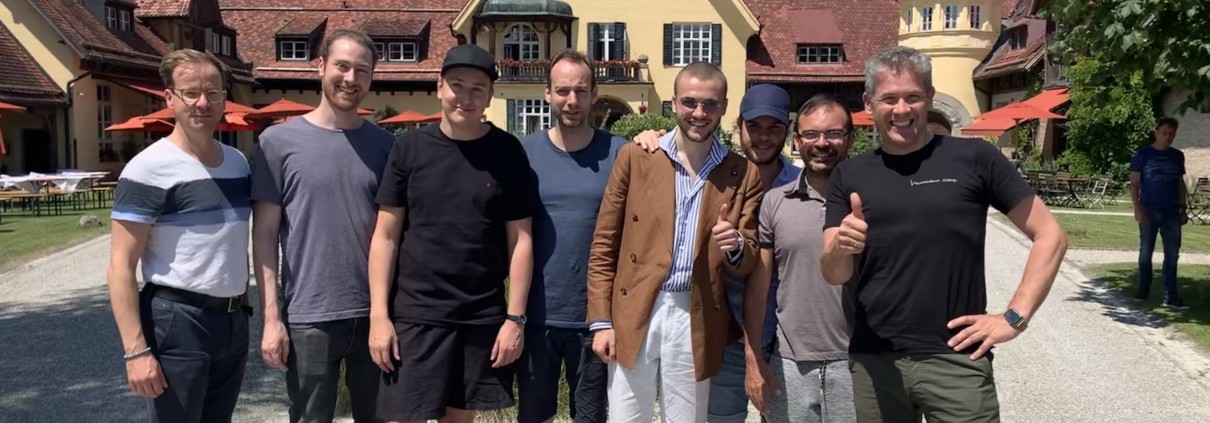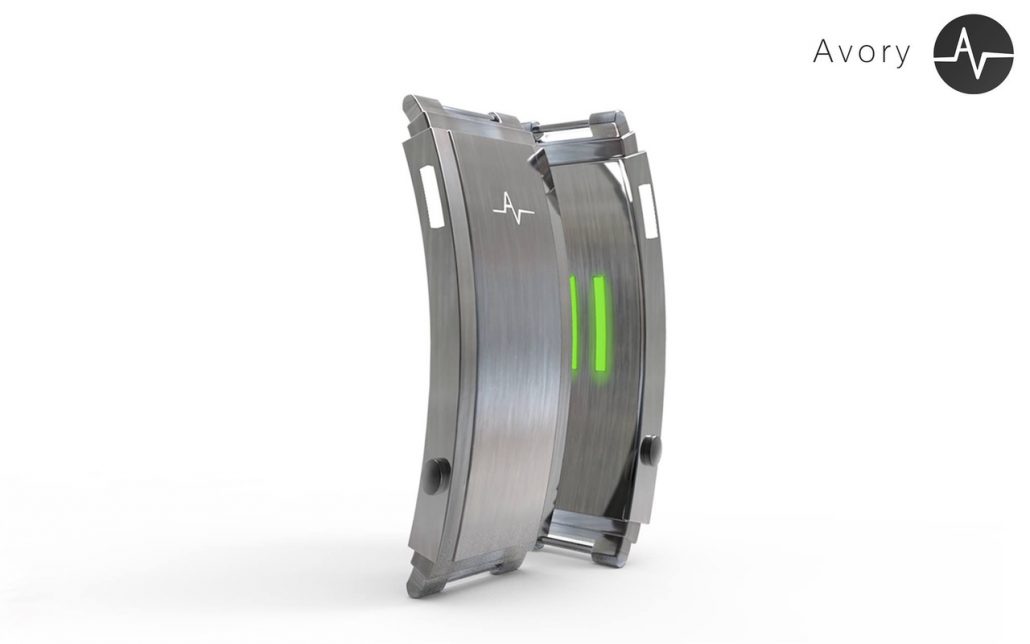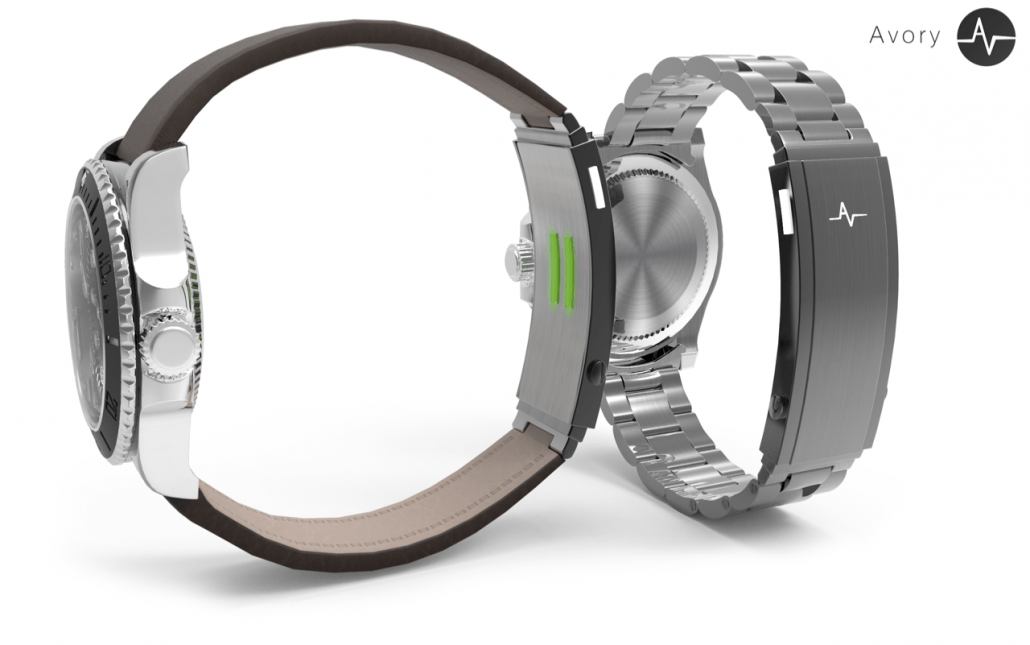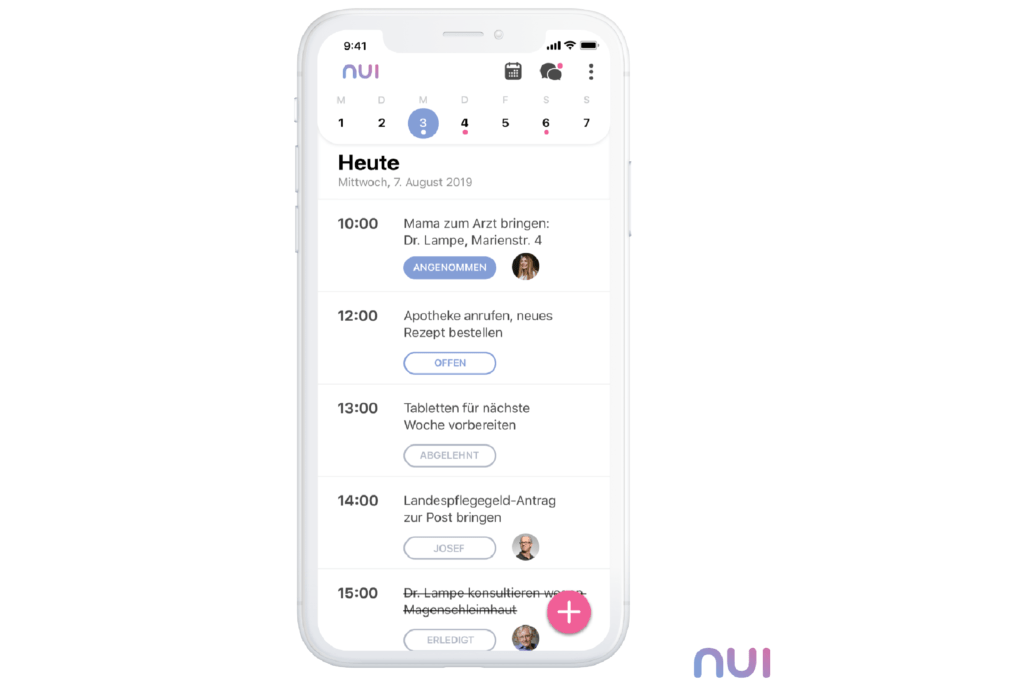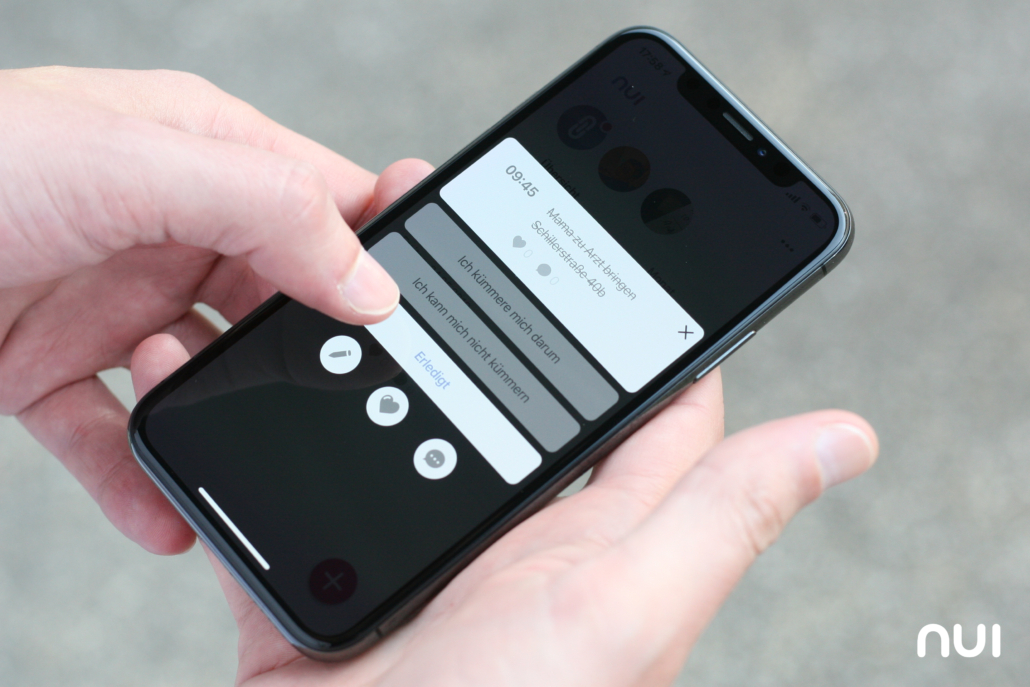IS FAILING THE KEY TO SUCCESS?
Neil Heiland is a young Munich entrepreneur who two years ago was preparing to start his own company, Avory. As part of Avory, he was working on developing a technological wristband clasp for mechanical watches. He spoke about this in an interview in 2017 (see link below). In the end, however, he did not succeed in realizing his idea. But that was not a failure for Neil, because he soon founded a new company in the care industry: Nui Care, an app that has been on the market for several months now.
In this interview, Neil explains why he quit Avory, what he learned from it and how he successfully founded Nui.
Before you started Avory about two years ago, you said you couldn’t fail in starting a business. What is your opinion now? Do you think you actually failed with Avory?
Yes and no. Maybe a quick word about the situation back then: When I started with Avory, the niche wasn’t exploited at all. There was no serious product that connected the world of normal watches with the world of wearables. On the one hand, this was an exciting task, because I would of course have the whole market to myself. On the other hand, it naturally questioned the existence of the market itself – if the product I had in mind was so exciting, then why were there no solutions in this area?
This silence put me in a difficult position and I would see my only failure here. As there was no one else to do what I wanted to do, there was little competition for me. No pressure from outside. Nobody who competed against me. For someone like me, who had always been very competitive, there was something missing. So I held myself back a little, played the perfectionist and unconsciously went round in circles. I also made myself too comfortable and finally didn’t focus enough on the topic. Personally, I regard this “wandering around” as a failure, because one day the market wasn’t quite as empty anymore and I wasn’t sufficiently prepared for it.
So I believe that it was rather me failing in the company than the company failing itself. I don’t know if you can understand it that way, but that’s how I see it.
Describe the moment when you realized that you would quit Avory. What was the hardest part?
In the last 2-3 months of Avory it had already become apparent that I would not continue Avory for much longer. I had based much of my vision on a few theses that were disproved by new insights and developments in the market – I wasn’t quite sure at the time, but that practically meant the end of the product, because I wasn’t fully behind the solution anymore either.
But I made the actual decision on the way back from work. I was listening to an audiobook from Seth Godin – “The Dip”. In short, he describes the concept, that every very successful phase results in a long, exhausting, frustrating and very hard time. Actually it makes sense. He further describes that if someone wants to be the best in an area, he must be willing to go through this “dip” – no matter how long or difficult it may be. I knew at that moment that I didn’t have the drive and conviction to want to be the best in the market and therefore was playing with bad cards for the hard time ahead.
The most difficult thing for me personally was the fact that I stopped before it even started. I had sawed off the company idea shortly before it was founded and knew that even though the market situation had changed and I was no longer 1000 % behind the idea, the reason for stopping was due to my “playing around”. What certainly wasn’t easy was to finish the job. After all, it was my first big idea in this direction. Today, I still walk around with a smartwatch and a normal watch at the same time.
Copyright: Avory
Copyright: Avory
What did you lose and what did you win with Avory?
The whole process behind Avory has laid the foundation of the person I am today. It confirmed to me the belief that I can do anything I want as long as I am willing to put the work into it. But the most important point is the people I have met. Through Avory I got to know my co-founder, mentor and meanwhile also good friend Christian Ehl. Through him I met the first members of our team and today I can proudly say that Nui is home to the best designers and developers in Munich.
The only thing I might have lost was the last bit of uncertainty left in me. All my friends and acquaintances can sing a song about it.
With Avory you were specialized in the wearables industry, but Nui’s focus is on care. Why exactly did you choose this area?
The main difference between Avory and Nui is that Avory was a product that I really wanted to have myself and Nui is a product that wasn’t created directly out of my own need.
At the time Nui was created, I was “Entrepreneur in Residence” – which, by the way, apparently means personal assistant – at Christian Ehl’s advertising agency. He came back from his vacation with the idea to build a digital assistant for seniors. We quickly noticed that incredible technological advances have been made in all areas of life, yet when it comes to aiding seniors, the best we have is a phone with big buttons. So we’ve put together a small team with the mission to help seniors live self-determined lives in their own homes for as long as possible – with the help of technology.
The reason I ended up being so fascinated by this challenge from a company in the care industry is that, at the end of the day, it will affect everyone. Today, we are getting older and older, and everyone – no matter how wealthy, smart or powerful someone seems to be – will need support in everyday life at some point. And this is the area where I want to do something!
To what extent was your experience with Avory crucial to the founding of Nui?
Without Avory I would certainly have been a lot more passive in designing the idea. I knew that I could and had to put my foot down this time – and I did.
What was different in Nui’s founding process compared to Avory’s?
The biggest difference in starting on your own – which was the case with Avory – is that everything really depends on one person. If I was not doing anything in the company, nothing was happening. It is a very big challenge, but also one that has a lot of growth potential. For example, I had no idea about all the founding things with Avory, so I put it off. With Nui, I’m much better positioned with my three co-founders here, because they’re all not founding for the first time. So I didn’t have to worry about a single page of the foundation documents or investment contracts, let alone the investment itself – Markus, Christian and Oliver had arranged that. In general, I think we complement each other very well. Investors keep telling us: “In your team, one person brings experience and know-how, the other naivety and drive.”
Copyright: Nui Care GmbH
Copyright: Nui Care GmbH
You are now working in a financed start-up with 10 employees and several hundred satisfied customers. What is your current position in the company? How has Nui developed to the current status and where do you see the company in the future?
The company has experienced a couple of different development phases so far and right now we are definitely in the most exciting one. In January, we welcomed Markus C. Müller as Managing Director – as a convinced Blackberry user, it is particularly exciting for me to work side by side not only with a successful entrepreneur, but also with the former European head of Blackberry. Markus brought new energy, know-how and capital to the company, that we are now using well.
With Nui, we want to help seniors live in their own houses for as long as possible. In the first step, we support the caring relatives and help with the organization of everyday life through an App – Nui. One can imagine it today as a combination of a group chat, a shared calendar and a to-do list. All relatives have access to the upcoming tasks and important information and can thus participate more easily in the care. Nui is a kind of accompaniment for relatives through their daily care routine and in future will also provide an overview of open services of the care system or specific information on how to deal with a person in need of care.
I take care of the product and the marketing. So I talk a lot with customers in order to find out how we can support them even better in their daily care, and then pass that on to the team in a prioritised way. After our design and development team has waved the magic wand around a couple of times, and the features are ready, I think about how we communicate everything to the outside world.
We have now completed our beta phase and are currently implementing a few major features that we will release at the end of the year along with a freemium model.
In the long run, Nui will establish itself as the leading platform for caring for a loved one, helping to ensure that our grandparents, parents and eventually us don’t have to go to the nursing home at some point, but can stay in the place we all value most – our home.
Were investors immediately convinced of your idea? Is there a high pressure for you due to the financing? How did you deal with the investors’ expectations?
One thing that is certainly different about Nui compared to Avory or many other companies is that you didn’t really have to explain the problem. Regardless of the fact that the nursing market is of course becoming an increasingly important topic, we in the team were surprised by how quickly our discussion partners understood that there should be something like Nui. Personally, I believe that the pressure comes not necessarily from the investors, but rather from the customers. During my weekly phone calls with our users, I am reminded of this again and again – when someone calls you and almost yells at you while they say how important our solution is and that we shouldn’t screw it up, it has its effect.
I can’t say that much about the general topic of investors. I think that many entrepreneurs, at least in the media, don’t always put the right focus here. Of course, investors belong to the development of the company and I am very grateful for those we have on board, but in the end it is all about the customers and what we have achieved there. Therefore, when it comes to numbers, we will be more concerned with the users than with our account balance.
Can you imagine a calmer phase following now for you, after the dynamic developments and changes in the last two years? Would you like to make a statement about your own future in five years?
I can’t tell you exactly where I will personally be in five years. But one thing I can say for sure – there is definitely no calmer period to come. I wouldn’t enjoy it at all.
But speaking of targets and plans, I’ve got something that I still have to solve for myself personally. Whenever I introduce myself, people in Germany think that my name is “Nils”, so I always say “Neil, like Neil Armstrong! – apparently he is also known in Germany. In the end, all my projects serve one big goal: that the people who are also called Neil will at some point say – “Neil, like Neil Heiland”. Then I can go to sleep in peace.
With 21 you have already gained a lot of experience by founding the two companies. What’s the most important thing you took out of it?
At first I thought that I would have to think a lot about this question, but it is actually quite clear – the most important thing is the value of the team and the people in the company. I can only do well a limited number of things myself, and one thing I have learned about myself personally is that sometimes I need resistance from the outside and other opinions in order to do really good things. I need someone to challenge my thoughts, ask critical questions or give me a different perspective. People make the company what it is today and even if we are still quite young, it is the team next to the product that makes me most proud.
Copyright title image: Nui Care GmbH

